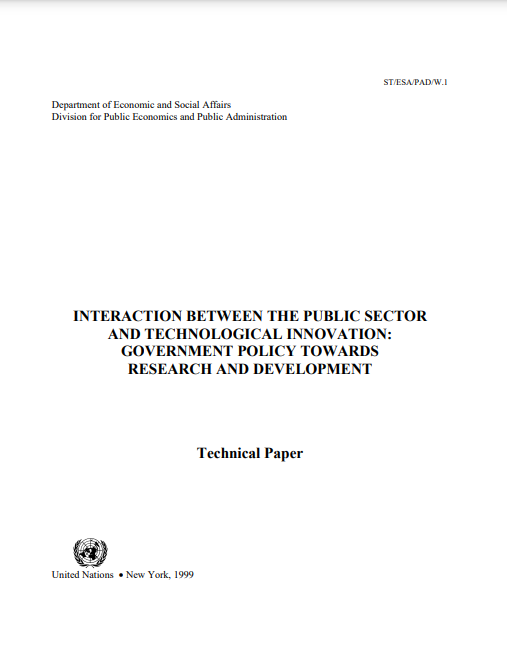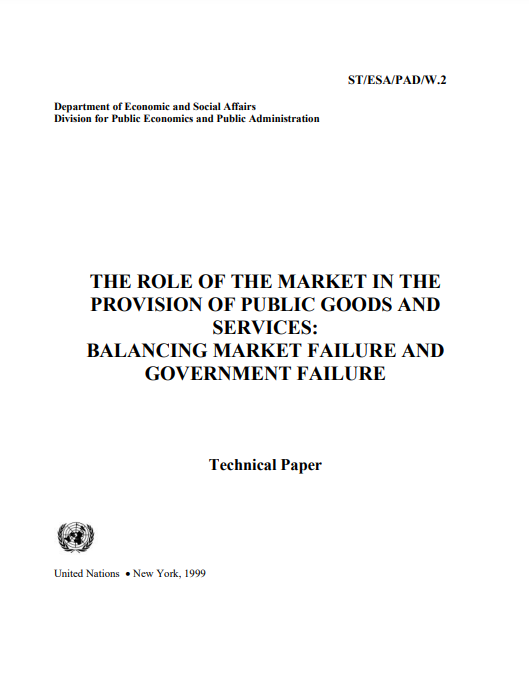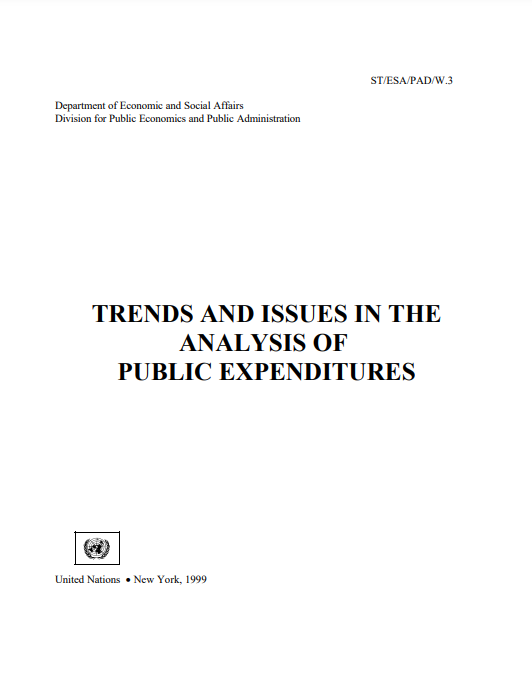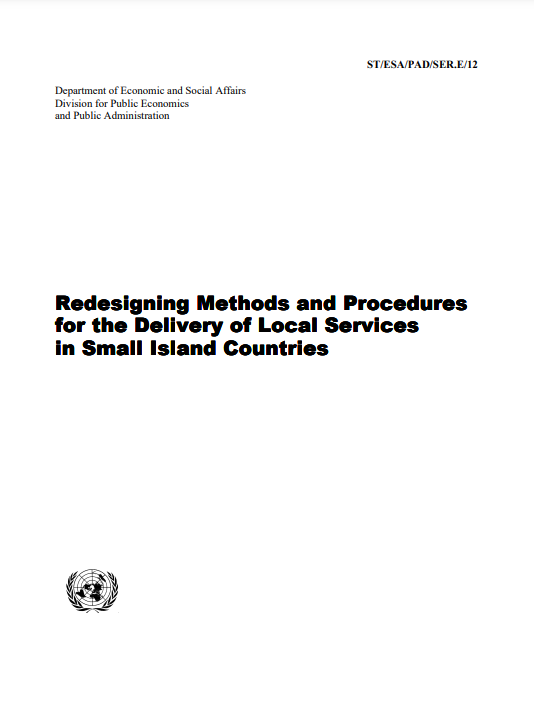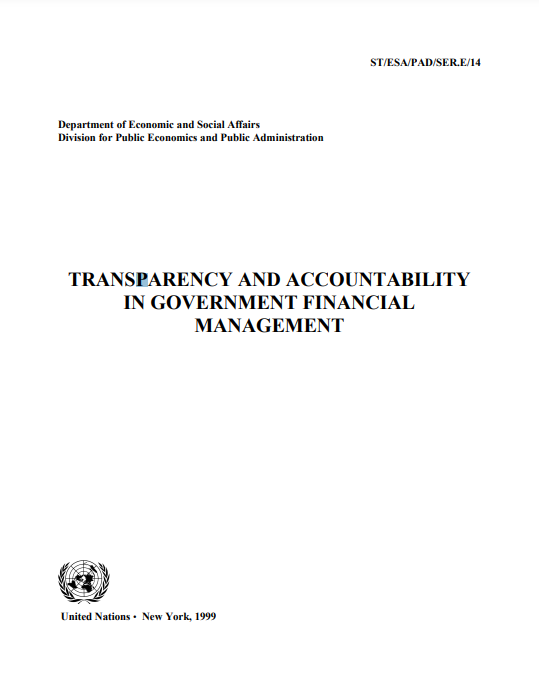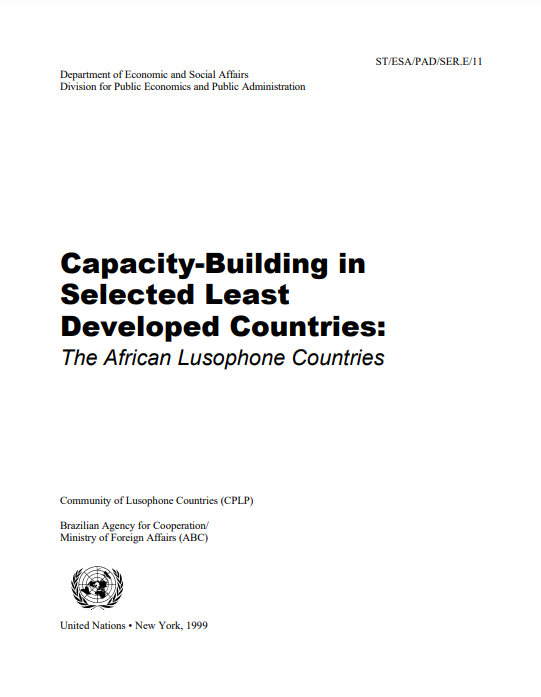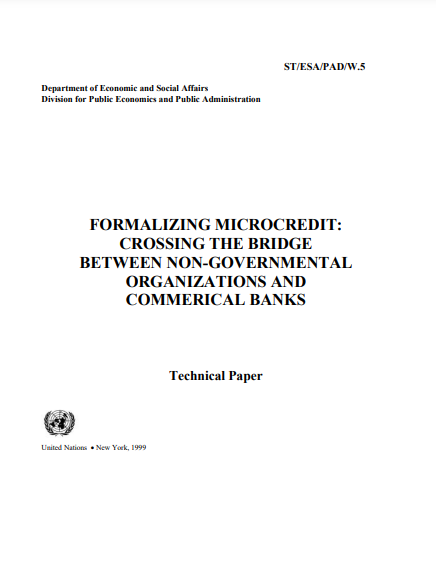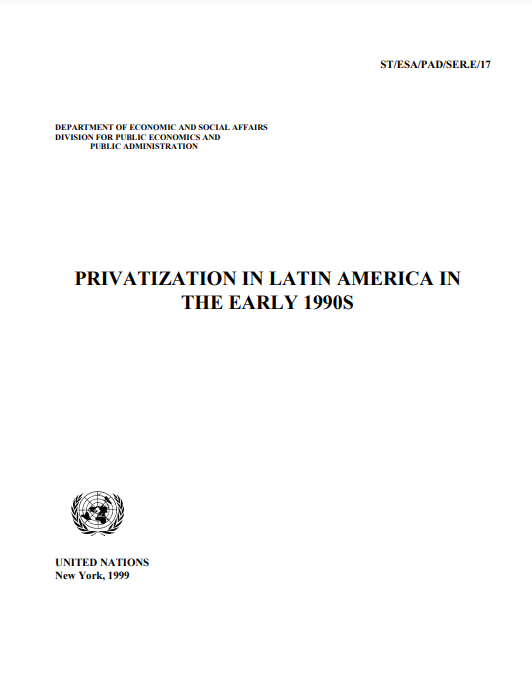| Publications
Interaction between the Public Sector and Technological Innovation: Government Policy towards Research and Development
This report analyzes the role of the state in supporting research and development (R&D), as part of state policies towards technological change. The report is a contribution to the ongoing work of the Division for Public Economic and Public…
| Publications
The Role of the Market in the Provision of Public Goods and Services: Balancing Market Failure and Government Failure
One of the most important issues under debate in policy circles in recent years is the appropriate role of governments and markets in fostering economic development. Over the last two decades, governments have assumed a smaller role as privatization…
| Publications
Trends and Issues in the Analysis of Public Expenditures
This report contains six papers presented at a United Nations Ad Hoc Expert Group Meeting on "Patterns and Trends in Public Expenditures", held at United Nations headquarters in New York on 8 - 10 June 1999. The first paper focuses on public versus…
| Publications
Redesigning Methods and Procedures for the Delivery of Local Services in Small Island Countries
Recently, in many developing countries, a variety of administrative reform efforts have been initiated as a means to promote sound development under the concept of promoting “good governance.” One important consequence is that the improvement of…
| Publications | Participation and Accountability
Transparency and Accountability in Government Financial Management
The first on-line meeting of experts under United Nations auspices was an Ad Hoc Expert Group Meeting on Effecting Transparency and Accountability in Government Financial Management. The meeting was held in New York, Addis Ababa, Accra, Mbabane,…
| Publications
Capacity-building in Selected Least Developed Countries: the African Lusophone Countries
As part of its regular budget activities, the Division for Public Economics and Public Administration (DPEPA) of the United Nations Department of Economic and Social Affairs (UNDESA) has undertaken jointly with the Community of Lusophone Countries (…
| Publications
Formalizing Microcredit: Crossing the Bridge Between Non-governmental Organizations and Commercial Banks
This paper reviews the existing literature on microcredit with a focus on the formalization of commercial banks and an involvement of commercial banks in microcredit operations. It does so primarily through the analysis of microcredit financial…
| Publications
Privatization in Latin America in the Early 1990's
This is an overview of privatization in Latin America in the early 1990's, which has reference to the Conference on that subject held in Buenos Aires, Argentina in March 1995. It presents, in an analytical and comparative manner, the objectives of…
| Publications | Public Service Innovation
Public Service in Transition: Enhancing its Role, Professionalism, Ethical Values and Standards
In April 1996, the United Nations General Assembly, at its resumed 50th Session, adopted resolution 50/225 on Public Administration and Development. The resolution confirmed the importance of reinforcing public administration for development and…
| Publications
African Public Service: New Challenges, Professionalism and Ethics
As globalization is impacting our life in different ways across the world, the State may be losing some of its traditional functions to supranational and sub-national institutions. At the same time, advances in communication, technology and science…
| Publications
Restructuring and Reform: Business Development Opportunities in Military Industry Conversion to Civilian Markets
This publication is unique, in the sense that it presents and discusses the military industry restructuring and public sector reform experience in a wide range of situations in Argentina, Belarus, Chile, China, Eritrea, European Union, France,…
| Publications
The Role of Supreme Audit Institutions in Auditing Public Works
The joint UN/INTOSAI interregional seminar on "The Role of Supreme Audit Institutions in Auditing Public Works" was held from 16 to 20 March 1998 in Vienna, Austria. This event was the 13th interregional seminar organised by the Division of Public…
 مرحباً بكم في الأمم المتحدة
مرحباً بكم في الأمم المتحدة 
